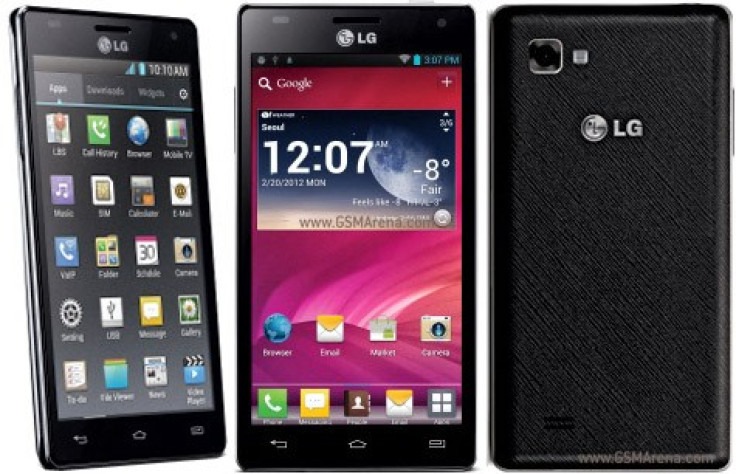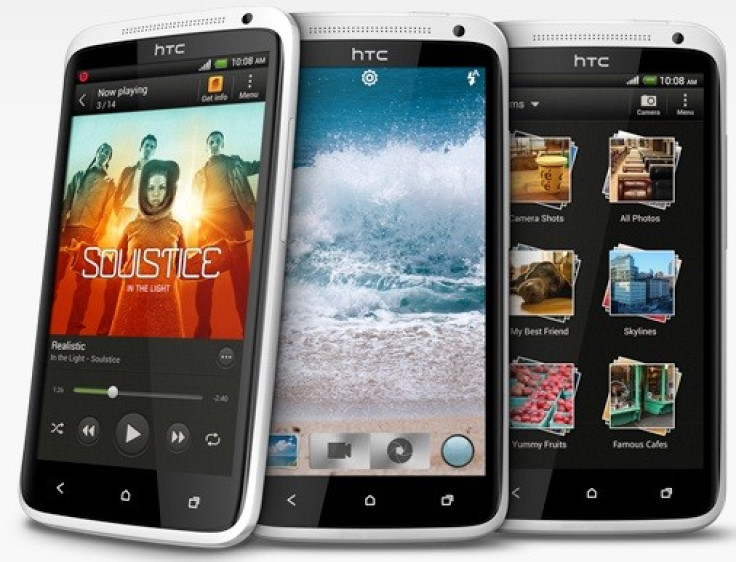Can LG Optimus 4X HD P880 Take Down HTC One X and Galaxy S3?

LG launched a troika of flagship high-end smartphones during the Mobile World Congress (MWC) held in Barcelona earlier this year. The phones cater to the varying needs of a range of users, from those with a liking for "phablets" - a phone that functions like a tablet - to performance-oriented monsters. The former model is the Optimus Vu, which is powered by a dual-core processor and has a massive 5in display. The latter model is the Optimus 4x HD P880, with a 1.5GHz quad-core processor. The last addition to the high-end line-up for LG this season is the LG Optimus 3D Max, which is aimed at enthusiasts who crave 3D experiences on their portable devices without the use of 3D glasses.
Moving on the extreme performance edition from LG, the Optimus 4x HD P880 truly brings stiff competition to the table against its rivals HTC One X and Galaxy S3.

To begin with, the two big traits of the Optimus 4X are its 4.7in HD-IPS LCD display (720p; 1280x720 at a pixel density of 312ppi) and the powerful quad-core 1.5GHz Cortex A9 processor, based on the popular NVIDIA Tegra 3 chipset found in the HTC One X. in addition, the LG smartphone adds the ULP GeForce graphics solution to its arsenal, which is the same as the one on the One X.
Check out the head-to-head between LG, Samsung and HTC
Display and Appearance
The LG Optimus 4X HD P880 boasts a 4.7in True HD IPS capacitive touchscreen display with a 1280x720 pixel resolution and support for 16M colours. According to LG, the on-screen display uses the maximum available space when reading e-magazines or e-books, indicating a high aspect ratio of display.
The LG device's display specifications match those of the One X with the exception of display technology and interface. The One X ships with the Super IPS LCD2 capacitive touchscreen with HTC Sense UI on top, as well as Corning Gorilla Glass for display protection.
The Galaxy S3 comes with a Super AMOLED capacitive touchscreen, a slightly bigger screen - 4.8in and marginally thinner pixel density of 306ppi, as well as support for TouchWiz 4.0 UI.
Operating System
All three devices run Android 4.0 (Ice Cream Sandwich) operating system out of the box.
Processor, Memory and Storage
The LG Optimus is powered by the latest NVIDIA mobile processor - the Tegra 3 - which is a Cortex A9 quad-core processor clocked at 1.5GHz. The processor also comes with a ULP GeForce GPU chip. The chip manufacturer claims their processor can perform twice as fast as the Qualcomm 8660, the TI 4430, the Samsung 4210 and the Apple A5 processors while running Photo Stitching and Video Transcoding apps. According to Techzek, the Tegra 3 is expected to bring PC-class processing-speed to smartphones and possibly even better the performance of the Qualcomm MSM8660. All three smartphones have 1GB of RAM.
The processor and system memory (RAM) configurations of the LG smartphone match perfectly with the HTC One X, making for a stiff battle among leading Android smartphones. The only exception is storage. The LG ships with only 16GB of onboard storage (with microSD expansion to 32GB), while the One X comes with 32GB of space onboard and does not offer microSD expansion capability. By comparison, the S3 has three variants - 16/32/64 GB - with support for microSD expansion up to 64GB.
Camera
The LG Optimus 4X HD P880 has an eight megapixel rear shooter with auto-focus and LED flash, as do HTC and Samsung's devices. However, the LG phone cannot shoot still images while recording HD video, which the other two can. All three smartphones offer 1080p (full HD) video recording capability at 30fps (frames per second) on the primary camera, while supporting 720p recording on the secondary camera for video calls.
The P880 features the 1.3 megapixel rear-facing camera found on the HTC One X, while the S3 offers a slightly higher resolution 1.9 megapixel camera.
Connectivity
The LG Optimus 4X HD P880 brings Wi-Fi capability with DLNA and Wi-Fi hotspot features. The phone automatically connects to HSDPA and HSUPA networks with data speeds up to 21MBps and 5.76MBps respectively, which is same as the speeds supported by both the HTC One X and Galaxy S3 over 3G networks. The sole exception is that the S3 features 4G LTE capability, besides the common Wi-Fi, Bluetooth and USB 2.0 support across all the three smartphones.
Battery
The LG smartphone features a powerful 2140mAh Li-Ion battery, which is comparable to the one the Galaxy S3 has - 2100mAh. The HTC One X, on the other hand, features the weakest of the three with a Li-Po 1800mAh battery.
Pricing and availability
The LG Optimus 4X HD P880 is expected to release in June, across the UK, at around £380 (excluding VAT) or about US$600. Meanwhile, the estimated price for the Galaxy S3 is around £500 (with the SIM free) at the time of release, while the HTC One X is pegged at £470 in UK.
© Copyright IBTimes 2024. All rights reserved.






